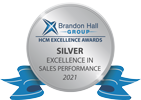Top 5 Sales Coaching Tips

As we continue to get requests from sales managers looking for ways to improve their sales coaching skills…we’ll continue to explore the topic. Even though this is an area we could go on and on about, we’ll keep this post to just five concise – yet insightful – sales coaching tips.
1. Focus on Behavior, Not Personality
This is an important point for new and seasoned sales managers alike to keep in mind. A personality type is not an indication of sales performance. For example, a sales rep who never seems serious and jokes with everyone in the office might have numbers through the roof. As a manager, you may need to repress the urge to “coach” to personality traits that do not affect performance.
When you focus on specific behaviors e.g., “Maybe you came off a little bit abrasive on that last call; let’s talk about how you could have phrased it differently ” vs. general personality traits e.g., “You should learn to lighten up; I’d like you for you to work on that” you create a less defensive environment. The goal is not attack a rep’s personality but rather to speak to and coach them through their behavioral weaknesses.
2. Spend Time with the Middle 60 Percent
Research continues to prove that a sales manager’s time is most effectively spent on the core 60 percent of their sales team. Why? Top performers don’t need as much of your attention – they are meeting or surpassing quotas – all they need is positive reinforcement. And your lesser performers, they have a lot more ground to make up and it could be a long time before you see results.
The middle 60 percent of performers is where you will have the greatest impact and where your energy and efforts will have the greatest return. Imagine what even a 5-10 percent performance increase from each of these reps could mean for your overall numbers.
3. Prepare Yourself with Proof Points
Before any coaching session takes place it is critical that you take the time to plan and thoroughly prepare. You should be armed with measurable data and discussion points to validate your coaching. This means listening to recorded calls, reviewing key metrics from reports, and assessing leading and lagging indicators. If possible, make arrangement to observe your rep in action prior to your session.
The better prepared you are with definitive proof points, the higher quality your session will be – and the more your sales rep will glean. Quality sessions lead to productive interactions which have a better chance of leading to real, measureable improvement.
4. Always End with Clear Action Steps
A good coaching session is only as effective and productive as its next steps are clearly defined. In other words, what do we do and where do we go from here? And not in a general sense e.g., “I’d like for you to work on a different way to open your calls.” Give extremely detailed direction e.g., I’d like for you to open your calls with the value statement we discussed and I’d like for you try it eight times in the next week.” Eliminate any gray area as to what you expect of your sales rep.
Further, before you end the session, make sure you have their buy-in on the plan. Confirm the expectations you have of the sales rep and ask them if they agree that the plan you have laid out is both realistic and attainable. If clear action steps are not defined and agreed upon by both parties, even the most effective coaching session will have gone to waste.
5. Don’t Forget to Follow Up
This is where many sales managers “fall off the wagon.” They planned for the coaching session, they gave great feedback and even defined clear action steps, but then…nothing. The follow-up is where a manager actually measures the effectiveness of their efforts. As busy as we all know you are, follow-up is something you must make time for – a plan without follow-through is incomplete.
And consider this, what kind of message are you sending to your reps when you blow off your follow-up meeting? Your disregard for the plan will send the message that it’s not important to you and therefore won’t be taken seriously by your sales team.

- Account Planning (16)
- Awards (42)
- Client Testimonial (37)
- Personal Branding (21)
- Podcast (12)
- Research (77)
- Sales Career Development (90)
- Sales Coaching (164)
- Sales Consulting (141)
- Sales Culture (181)
- Sales Enablement (380)
- Sales Leadership (110)
- Sales Management (267)
- Sales Negotiation (11)
- Sales Prospecting (136)
- Sales Role-Playing (19)
- Sales Training (242)
- Selling Strategies (279)
- Soft Skills (78)
- Talent Management (101)
- Trusted Advisor (29)
- Virtual Selling (57)
- Webinar (13)




























